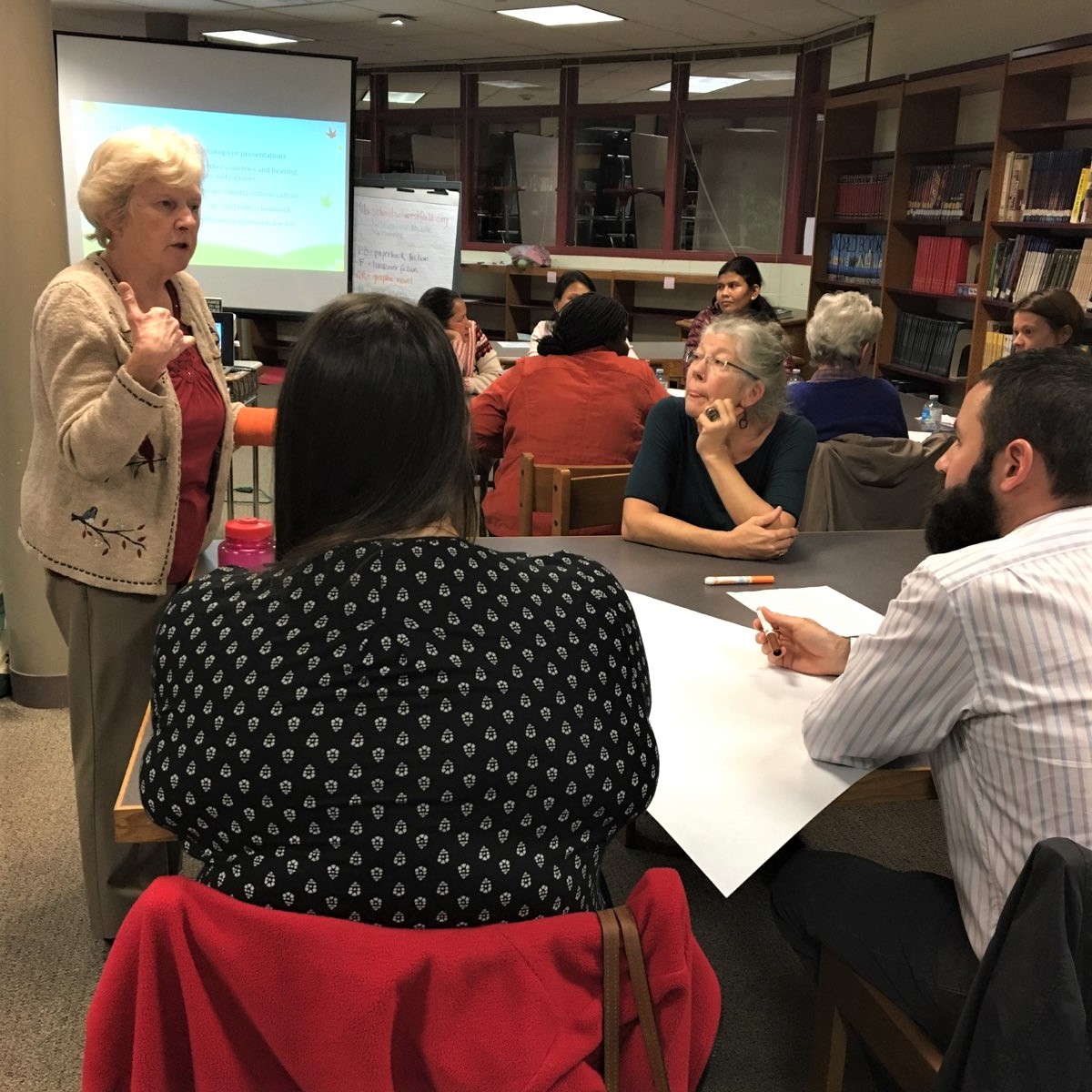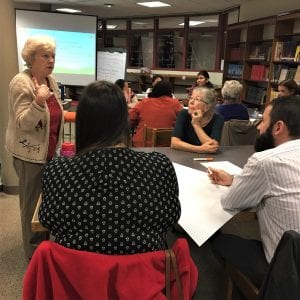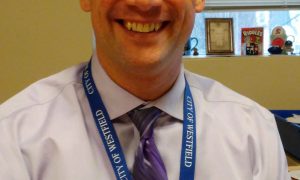WESTFIELD – A parent advisory committee has been formed for parents of English language learners in Westfield Public Schools.
Three meeting for the EL-PAC have been scheduled to meet in the Westfield Middle Cafeteria this year, and Denise Ruszala, WPS director of assessment and accountability and ELL coach Susan Moore hope that families will participate.
Ruszala said the number of students in the English language learner program hovers around 260 in Westfield, 5% of the student body. By far, the largest number are Russian speaking, currently at 143. That includes a new group of refugees from the Ukraine.
Second is Spanish speaking at 39, then Nepali at 26, Arabic at 23, and a handful that speak Tamil, Swahili, Jurati and Mandarin. The students come in at all different levels of English, but the majority are beginners. Ruszala said they need at least three to five years of English as a second language before they transition out of the program.
The English language learners program is in Highland Elementary, Munger Hill Elementary, Westfield Intermediate School, Westfield Middle School, Westfield High School and Westfield Technical Academy.
In its second year, the EL-PAC is for parents of all English learners, including those who have graduated out of the program. The state has asked districts to increase parent involvement, and Ruszala said eventually she hopes that parents will take the lead on the committee, which is modeled after the parent-led Special Education Parent Advisory Committee (SEPAC). She said parents of students who have transitioned out of the program may be more interested in wanting to participate as leaders.
Invitations for El-PAC are sent out to the families in the predominant language groups, and right before the meetings, translators call to remind them. EL-PAC meetings have child care offered by Northampton High School honor students, who receive community points. They also have refreshments.
The first EL–PAC meeting on Oct. 16 from 6 to 7 p.m. will include discussion of+ parents and schools as partners. ESL teachers will participate, as will translators.
“Teachers have wanted to meet with parents,” Moore said. She said it will give them an opportunity to go over expectations for students, and how the students can be successful in the program. She said even if the parents don’t speak English, they can help their children by showing an interest in what their children are doing.
Ruszala said ESL teachers really reach out to the families. “We know that’s an area that’s difficult,” she said.
The meetings begin with icebreakers, similar to what children in class may be doing. For example, they may start with “Hello, my name is,” in their own languages, and pairing up with other parents, teach them how to say the phrase and their names.
The second session on Jan. 22, will be on understanding the different state assessments. In addition to MCAS, English language learners take a separate test called ACCESS, which assesses English communication and comprehension, and determines how much English language instruction a student gets in school.
The test is developed by 30 states belonging to the World Class Instruction Design Assessment (WIDA) consortium, in which Massachusetts schools participate. The English language classes are small, usually with a 12:1 ratio. Beginners get 90 to 130 minutes a day in instruction; intermediate level students receive 90 minutes, and transitional students, 45 minutes. Ruszala said there can be multiple languages in a class.
Ruszala said at WIS and WMS, ELL teachers are attached to a team and go into the classrooms during the literacy block to teach their students, similar to the immersion model being used for special education.
All teachers that have English language learners in their classrooms are now required by the state to have Sheltered English Immersion (SEI) endorsements, which are courses on strategies on working with ELL students, and on understanding how they gain language skills.
Although the state doesn’t pay for the training (an unfunded mandate), they do provide trainers. Ruszala, who is ESL certified, said the district has hosted several trainings, and most of the teachers have the endorsement.
This year, the district has been asked to host a state-wide SEI training at the Westfield Technical Academy. She said the technical teachers who don’t already have SEI are registered for it. Unit A teachers can also take SEI courses at Westfield State University for professional development, and the union will pay for the training.
Ruszala said members of the administration have all taken the courses.
“It’s all very good; helping our teachers to be more supportive to the English learners’ subgroup,” Ruszala said.
The third EL-PAC meeting on April 1 will be a celebration of multiculturalism in the schools. Ruszala said the translators may present at the meeting, and students work will be highlighted.
There are two full-time translators in WPS; Aixa Rivera for Spanish, and Svetlana Adamtseva for Russian. The district contracts out for other languages, and often uses people who have been through the program in Westfield. She said the translators go above and beyond for the families in the community.
Both Ruszala and Moore love working with the ESL program, and have been doing it most of their professional careers.
“It’s the best,” Moore said.
“It’s very rewarding to see them acclimate. I’ve witnessed people become American citizens. It’s very overwhelming. They are so proud. They invite you to the ceremony,” Ruszala said.
Since joining WPS in 2009, she’s also seen students go all the way. “I’ve seen some kids graduate, knowing that they couldn’t speak a word of English (when they arrived),” Ruszala said.
They have both been invited to weddings and other family celebrations. “They remember the people that were nice to them,” Moore said.
Ruszala also gave kudos to Westfield for welcoming the families. “Our families will stay; the way they’re respected and received in the community, not only in the schools. Our community really embraces the culture, and works with them,” she said.








